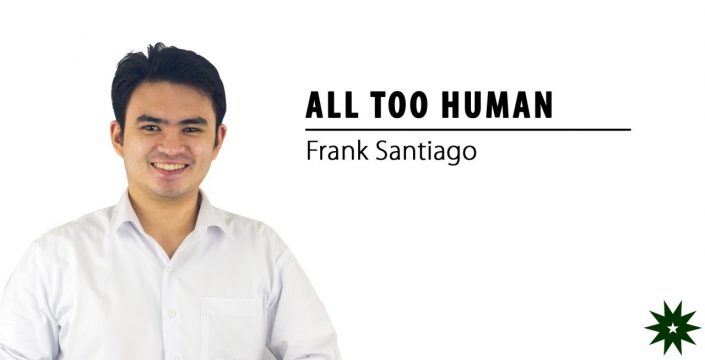I was almost kicked out of The LaSallian.
It was the start of my second year in college, and at the time, I was not yet a regular staffer of the publication. For those who don’t know, as a member of the organization, you have about a year to get regularized, which you earn by delivering outputs consistently, spending the minimum required hours in our office, and circulating the print issue every month, among other requirements. If you fail, you’re out.
I had spent almost a year by then; my head was basically on the chopping block.
Soon enough, the Editor in Chief that year scheduled a one-on-one talk with me, and I knew what was coming.
I begged him to give me a second chance despite my lackluster performance the year before, and, to my surprise, he agreed to let me stay.
I did my best to keep my promise, but it was far from easy: I was struggling to maintain my grades, and I had to keep up with a newer batch of staffers who were also trying to get regularized.
I waited months just to see my name on the staff box—a rite of passage for all regular staffers—and almost one-and-a-half years after I first joined, there it was. It paid off, and well, here I am six years later helping run the organization I desperately wanted to still be a part of when push came to shove.
It was a turning point in my college life because up until then, I held too much pride to admit that I wasn’t doing a good job as a writer. My ego wouldn’t let me accept the fact that I was bad or that I was underperforming in something I mistakenly thought I was already good at. After all, I had stellar grades during my freshman year, and I was a scholar, too. Being good at the things required of me by this organization should logically follow. Success was my only option, to paraphrase Eminem, and failure wasn’t.
And yet I did fail—badly, in fact.
I was too shy to work with my colleagues. I was also too conscious of my writing to actually write when asked to. And when I did write, the outputs ended up being either rushed and sloppy or late and half-baked. Had I not caught myself before it was too late, I would never have learned to accept the fact that I needed help and that I needed to work harder to improve.
There’s nothing wrong with admitting that you’re bad at something. Sometimes, being told you flat-out suck is the kind of reality check you need to actually start getting better. Other times, you need to fail first before you can actually succeed. In my case, my near-eviction was my reality check and turning point.
But knowing what your flaws are is only half the battle. You also need to know how to work on them. Unfortunately, I had no prior journalistic experience and I needed more guidance than what my editor could give me considering he had other staffers who needed his attention as well.
So I turned to the next best thing: I started studying the work of other staffers and of professional publications. I read, and read, and read—I treated it no differently from my college courses. I took it upon myself to improve rather than wait for someone to guide me. I pushed myself harder by volunteering to cover more events, which gave me more opportunities to write with shorter deadlines. Experience is the best teacher, as people have often said.
And, as cliche as
it sounds, this learning process is continuous. Even now when I’ve spent years writing
for this publication, I still find myself learning something new or finding out
things I was previously unaware of. But it wasn’t just improving my writing.
This mindset of lifelong learning extended to other parts of my life and is one
of the reasons why I decided on graduate studies after college. Even when you
are already good, you can still
be better.
At the end of the day, I am a work in progress, and that is okay.

